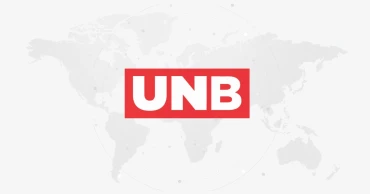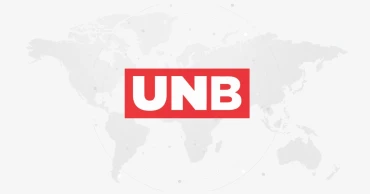success stories
Bumper yield of Boro paddy satisfies Madaripur farmers
Boro cultivation has brought smiles to the farmers of Madaripur district with a bumper yield this season.
During a recent visit to different parts of the district, this correspondent found that farmers are busy harvesting boro paddy.
Siraj Chokdar, 45, a farmer in Lakshiganj village of Sadar upazila, said, “I have brought several bighas of land under boro cultivation. This year's yield is quite good due to the favorable weather. The current price is also good – Tk 1,100 per maund. But if the price of paddy goes down, the farmer will lose,” he said.
Read more: Bumper yield of Boro paddy brings smiles to Chapainawabganj farmers
Merzon Khalasi, 50, another farmer of the same area, said that due to the increase in the price of seeds, fertilizers, pesticides, irrigation and labour costs the production cost has shot up to Tk 800-900 to produce one maund paddy.
Santosh Chandra, deputy director of District Agriculture Extension Department, said that 33,500 hectares of land have been cultivated in five upazilas of the district this year.
Farmers have already harvested 80 percent of Boro paddy in the area and they are expected to benefit due to the bumper paddy yield and good market price of paddy, he added.
Read more: 70% Boro paddy of haor areas harvested: Agriculture Ministry.
2 years ago
AL retains significant level of support because of success stories, says South Asia policy analyst Michael Kugelman
The Awami League retains a “significant level of support” and there is still a lot for the government in Bangladesh to point to as a success story amid current challenges, says Michael Kugelman, director of the newly created South Asia Institute at the Wilson Center in Washington, D.C.
“We have to keep in mind that the ruling party Awami League has been in power since 2009 and it retains a significant level of support,” he said, noting that the party has been able to bring success stories on the economic front and in countering terrorism.
Kugelman said that even if someone talks about all the bad things happening in Bangladesh, the bottom line is that there is still a lot for the government in Bangladesh which helps it sustain a significant level of success and there are people who see reasons to support it.
Mark Goldberg recently sat down with Kugelman to discuss the recent protests in Bangladesh. The Foreign Policy magazine published the podcast recently.
Read more: Bangladesh has changed a lot under Awami League govt: PM Hasina
Responding to a question, Kugelman said Bangladesh has been a regional success story for its economic growth. “It's a global success story.”
He described what had happened over the last few months, including consequences of the Russia-Ukraine war, high level of inflation, rising fuel cost and responses from the government like rationing electricity amid power shortages.
Kugelman said disruption in electricity supply was a major strain on the economy and sudden fall in economic productivity was an opportunity for the opposition to take to the street.
Corruption, one of the realities in Bangladesh, scandals in the financial sector could be another trigger for the opposition, he said, adding that economic problems and corruption gave the opposition opportunity to draw more attention.
Read more: Awami League never wasted a single taka of Bangladesh’s money: PM
Kugelman, however, said the protests launched by the opposition parties “was not a mass protest” but a partisan protest.
The foreign affairs expert said the government had the opportunity to explain the “temporary consequences” of external factors.
Kugelman said Bangladesh has demonstrated success in the area of counterterrorism and noted that there was a period when it was a significant problem in the country which had experienced series of deadly attacks.
He said the Awami League government took initiatives to crackdown really hard on the militants, and terrorism has not been a problem in Bangladesh over the last few years. “That’s another success story.”
Read More: AL always fulfills election pledges made to the nation: PM Hasina
Bangladesh has become a much bigger player on the global stage, including its role in peacekeeping operations and with its non-aligned and balanced foreign policy, he observed.
Responding to a question on “democratic backsliding” he said it is important to look back at the broader history of Bangladesh.
In the past, he said, BNP (when it was in power) was resorting to similar types of tactics and there were crackdowns as well as reports of enforced disappearances.
Kugelman said many things that are happening today were also happening when BNP was in power.
Read More: AL is party of people, no force can dislodge it from power: PM Hasina
He said “undemocratic tactics” happen in many countries, including Bangladesh and elsewhere in South Asia, and described them as “hybrid democracy”.
Responding to another question, he said he does not think that there will be a Sri Lanka-like situation in Bangladesh as there are safety measures in the latter.
Kugelman said Bangladesh's economy is much more resilient than Sri Lanka’s has been.
He also responded to questions on Bangladesh’s next national election which he hoped will be held as per the constitution.
Read More: AL candidate Ripon wins Gaibandha-5 by-election
3 years ago
Dhaka, Seoul working closely to make more success stories: Envoy
The Embassy of the Republic of Korea has released a video documentary on the history of Bangladesh-Korea relations during the past five decades focusing on the RMG cooperation and eying more success stories in potential sectors.
In the documentary, South Korean Ambassador to Bangladesh Lee Jung-keun said the two countries are now working closely together to make other success stories in other sectors in the coming years in the field of manufacturing, ICT, and infrastructure, etc, based on the success stories of cooperation in the RMG sector.
He mentioned that among all the partnership RMG cooperation has been the symbol and model of successful bilateral ties between Korea and Bangladesh for the past five decades.
The Embassy prepared this “very special” documentary as part of its preparation for the 50th anniversary of diplomatic relations next year.
Also read:S Korea, BGMEA for seizing opportunities through better trade, investment cooperation
The role of South Korean companies in the beginning and growing phases of Bangladesh’s RMG industry, which became the world’s second largest RMG exporter, has been well known to many Bangladeshis. It has been the finest success story of the business collaboration as well as the close friendly bilateral ties between the two countries, said the Embassy on Tuesday.
However, the stories and memories of RMG cooperation between Korea and Bangladesh have been fading away over the years, it said.
Through the oral stories shared by the key figures who have been involved in the history of the cooperation, the documentary vividly revealed the true friendship between Korea and Bangladesh during the past five decades.
The RMG cooperation between Korea and Bangladesh started in 1978 when a joint venture was established a Korean company, Daewoo Corporation, and Desh Garment of Bangladesh.
Some 133 Bangladeshis recruited by Desh Garment went to Korea in 1979 and trained by the Daewoo Corporation for six months.
These people, upon returning to Bangladesh, played a key role in the birth of Bangladesh’s RMG industry by spawning the factories across the country.
In the interview, Rokeya Quader, the Chairman of Desh Group Ltd. and widow of the late Noorul Qader, founder of the Desh Garment shared a detailed story of the start of the joint venture.
Commerce Minister Tipu Munshi, who was a pioneer of Bangladesh’s RMG industry and the former President of the BGMEA, also elaborated his own experience in the Korea-Bangladesh RMG cooperation.
Kihak Sung, the Chairman of Youngone Corporation, the first foreign investor in Bangladeshi’s RMG industry and the largest Korean investment company in Bangladesh also shared the story of his business in Bangladesh, including the establishment of the KEPZ, Korean Export Processing Zone, in Chattogram.
At present, Korea is the 5th largest foreign direct investor in Bangladesh in terms of the volume of the accumulated stock investment and RMG sector accounts for more than 70 percent of Korea’s investment in Bangladesh which reached over 1.3 billion dollars in 2021, according to Korean Embassy.
Historical Stories
The documentary also introduced several significant historical stories on the beginning of the diplomatic relations between Korea and Bangladesh, in particular the role of Ban Ki-Moon, 8th United Nations Secretary-General in the early days of the relations.
When the Republic of Korea officially recognized Bangladesh as an independent country on May 12, 1972, the recommendation of the recognition was drafted by Ban Ki Moon who was a desk diplomat in charge of Korea-Bangladesh relations on that time.
In December 1973, when Korea established formal diplomatic relation with Bangladesh, Ban, who was Second Secretary at the Korean Consulate General in New Delhi, visited Dhaka with Ambassador Loh Shin-young, who later became Prime Minister as well as Foreign Minister of Korea and met Father of the Nation Bangabandhu Sheik Mujibur Rahman.
Also read: S Korea to create decent employment for girls in Bangladesh
The trade volume between the two countries reached a historic height in 2021 crossing 2.1 billion dollars after almost 10 years of stagnation, said the Embassy.
Both countries are now enjoying very close relationship and strong ties which is very promising sign to make continuous effort to further expand the bilateral trade and to diversify the relationship.
The documentary was first broadcasted in full via Ekattor Television on April 14th. The full video clip can be found at the Embassy’s Facebook and YouTube page.
3 years ago




